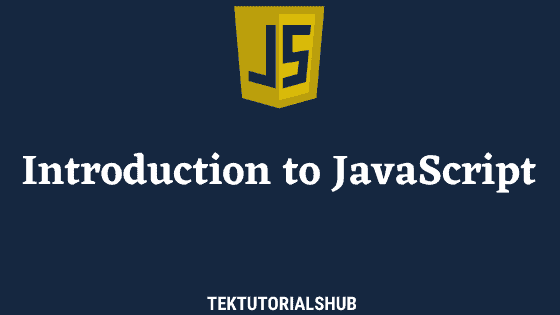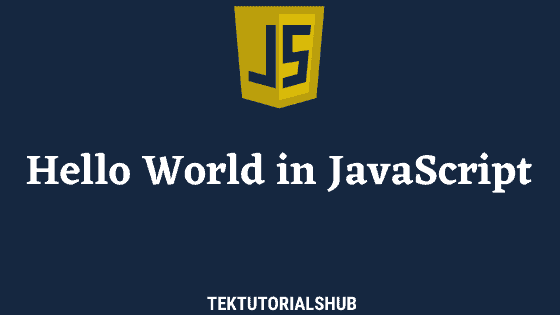The boolean is a primitive data type in JavaScript. It represents a simple true/false value. They are implemented as numerical values with a single binary digit (i.e., 0 & 1). The Boolean is an object wrapper for the primitive boolean value. Also, let us find the difference between Boolean object vs boolean primitive. The JavaScript also has a Boolean global function, which we use to convert any value to boolean primitive type. We also learn how to convert boolean to string and string to boolean.
Table of Contents
Defining boolean
There are two ways you can create the primitive boolean variable. using the normal variable declaration or using the global Boolean function.
boolean declaration
The following example creates two primitive boolean variables. You can see that the typeof returns as boolean.
Example
1 2 3 4 5 6 7 8 9 10 11 12 13 14 15 | let isDone= true; // primitive boolean type let isPending= false; // primitive boolean type console.log(isDone); //output true console.log(isPending); //output false console.log(typeof(isDone)); //output boolean **** output **** true false boolean |
Boolean Global function
The Boolean() global function converts its argument to a primitive boolean value and returns it.
1 2 3 4 5 6 7 8 9 | let boolvar=Boolean(true) console.log(boolvar) //true console.log(typeof(boolvar)) //boolean **** output **** true boolean |
You can pass any value to the Boolean function. It always converts them to either true or false. Whether a particular value converts to true or false depends on whether the value is truthy or falsy.
Truthy & Falsy
We can convert any types to boolean in JavaScript using the Boolean function
Falsy are those values, that convert to boolean false. There are eight falsy values in JavaScript. They are false, 0 (zero), -0 (minus zero) , 0n (BigInt zero) , " " (empty string), null, undefined & NaN.
Everything else converts to true, hence we call them as Truthy.
Examples of Falsy
1 2 3 4 5 6 7 8 9 10 11 12 13 14 15 16 17 18 19 20 21 22 23 24 25 | console.log(boolvar) boolvar=Boolean(0) // 0 is false console.log(boolvar) boolvar=Boolean(-0) // -0 is also false console.log(boolvar) boolvar=Boolean(0n) //BigInt 0 is also false console.log(boolvar) boolvar=Boolean("") //empty string is false console.log(boolvar) boolvar=Boolean(null) //null is also false console.log(boolvar) boolvar=Boolean(undefined) //undefined is also false console.log(boolvar) boolvar=Boolean(NaN) //NaN is also false console.log(boolvar) |
Examples of truthy
1 2 3 4 5 6 7 8 9 10 11 12 13 14 15 16 17 18 19 20 21 22 23 24 25 26 27 28 29 30 31 32 33 34 35 | let boolvar:boolean boolvar=Boolean(true) //true is true console.log(boolvar) boolvar=Boolean("test") //string console.log(boolvar) boolvar=Boolean("0") //0 as string console.log(boolvar) boolvar=Boolean("false") //false as string console.log(boolvar) boolvar=Boolean(100) //number other than 0 & -0 console.log(boolvar) boolvar=Boolean({}) //a emty object console.log(boolvar) let employee = { name:'test'} boolvar=Boolean(employee) // non empty object console.log(boolvar) boolvar=Boolean([]) //a emty array console.log(boolvar) boolvar=Boolean(new Date()) //a emty array console.log(boolvar) boolvar=Boolean(Infinity) //Infinity both +ve & -ve console.log(boolvar) |
Boolean Object
The Boolean is an object and is a wrapper around boolean.primitive type. You can create a Boolean object using the constructor function.
1 2 3 4 5 6 7 8 9 10 | let boolVar = new Boolean("test"); console.log(boolVar); console.log(typeof(boolVar)); ***output*** Boolean {true} object |
As shown in the previous example, zero, empty string, null, undefined results in false. Everything else returns true.
You can use the valueOf method to get the primitive boolean back.
1 2 3 4 5 6 7 8 9 | let boolobj=new Boolean("test") console.log(boolobj) //[Boolean: true] console.log(typeof(boolobj)) //object console.log(boolobj.valueOf()) //true console.log(typeof(boolobj.valueOf())) //boolean |
Boolean vs boolean
The boolean is a primitive type and Boolean is an object. Boolean() is a global function
The boolean is created using variable declaration or using the Boolean() function. The Boolean object is created using the constructor (using the new Boolean())
And since the Boolean object is an object, comparing it with boolean value always results in true, irrespective of its internal value.
1 2 3 4 5 6 7 8 9 10 11 12 13 14 | var b = new Boolean(false); console.log(b.valueOf()) //false if (b) { console.log("b is true although b is false"); // } else { console.log("b is false"); // } // false // b is true although b is false |
The following code is similar to the above, except we used the primitive boolean instead of object.
1 2 3 4 5 6 7 8 9 10 11 12 13 14 | var b = false; console.log(b.valueOf()) //false if (b) { console.log("b is true although b is false"); // } else { console.log("b is false"); // } // false // b is false |
Convert boolean to number
Converting the boolean to the number primitive will result in 1 for true and 0 for false.
1 2 3 4 5 6 7 8 9 10 11 | let trueNum=Number(true) let falseNum=Number(false) console.log(trueNum); // 1 console.log(falseNum); // 0 console.log(typeof(trueNum)) //number console.log(typeof(falseNum)) //number |
Convert boolean to string
1 2 3 4 5 6 7 8 9 10 | let trueStr=String(true); let falseStr=String(false); console.log(trueStr) //true console.log(falseStr) //false console.log(typeof(trueStr)) //string console.log(typeof(falseStr)) //string |
Summary
The boolean is a primitive type in JavaScript. The JavaScript also has the Boolean object. Always use the primitive boolean. When converting the other data types to boolean remember that zero, empty string, null, undefined, NaN returns false. Everything else returns true.
Read More


